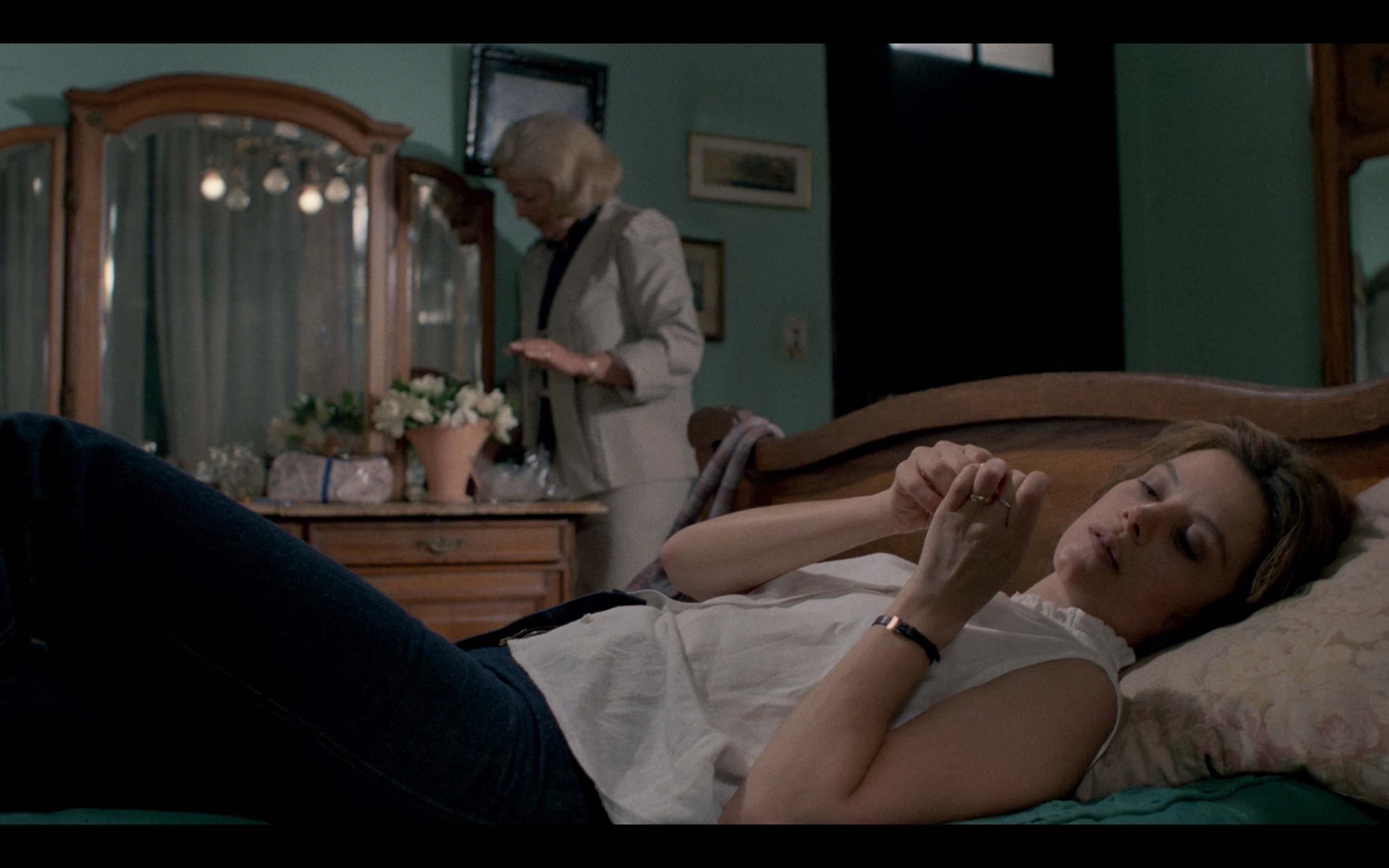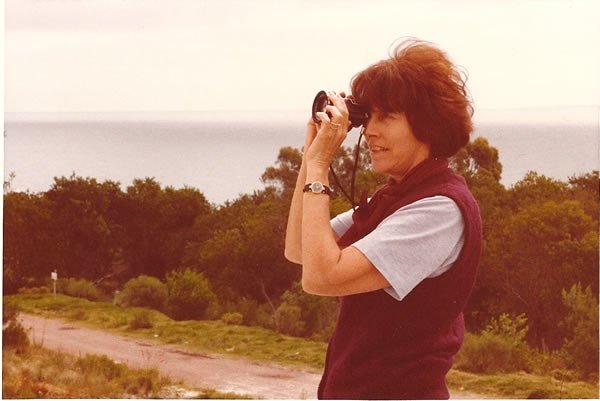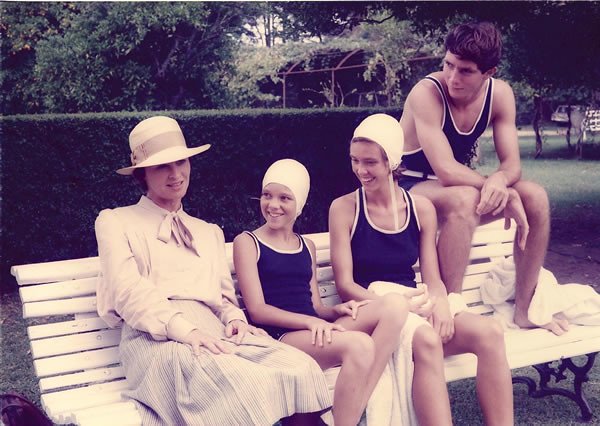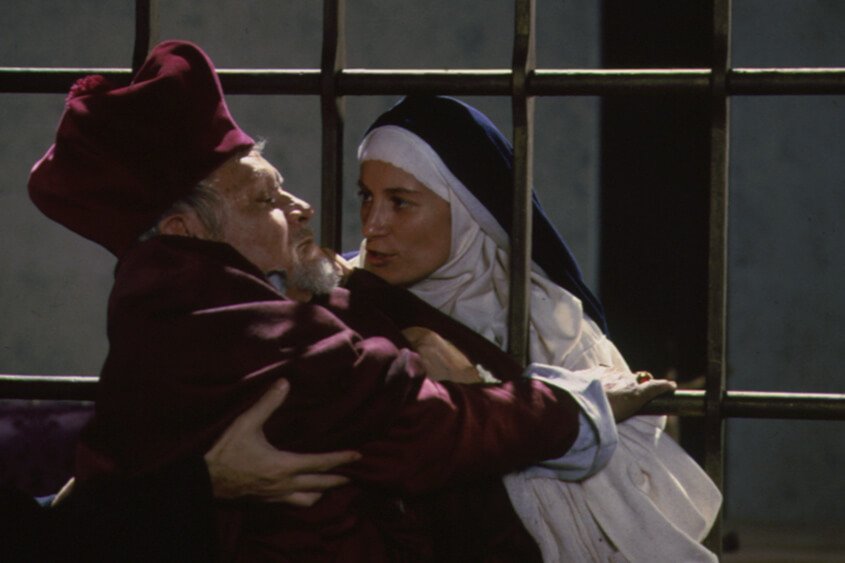
Daring to Dare: The Films of María Luisa BemberGCinema Mentiré brings to the UK a retrospective of trailblazing Argentinian filmmaker María Luisa Bemberg (1922-1995) to celebrate her extraordinary legacy on the 30th anniversary of her passing
Cinema Mentiré brings to the UK a retrospective of trailblazing Argentinian filmmaker María Luisa Bemberg (1922-1995) to celebrate her extraordinary legacy on the 30th anniversary of her passing. The programme kicked off at Ciné Lumière in May 2025 with the London premiere of the newly restored copies of her most acclaimed films: the Oscar nominee and forever favourite Camila (1984) and Miss Mary (1986), led by a fascinating Julie Christie. DARING TO DARE continued in July at Cinema Rediscovered in Bristol, with UK premieres of the new restorations of Nobody’s Wife (1982) and I, the Worst of All (1990), and is now on tour across the UK (see more info below).
Born into a traditional family of Argentina’s elite, Bemberg was home-schooled and married very young, not jumping into the world of cinema until she was over 50. Her career took off at a dizzying pace, writing two screenplays and directing two shorts and six feature films between the late 1970s and the 1990s. She was also closely involved in the founding of the Argentinian Feminist Union and the group La Mujer y el Cine, a cultural association that aimed to encourage women to take on leadership roles in the film industry.
Her work was a revelation compared to the cinema made in Argentina and Latin America at the time, both for its formal characteristics (how she worked with film genres, especially the melodrama) and for its thematic and political issues, addressing feminist demands centred on women’s autonomy. Bemberg confronted official accounts and what seemed to be established truths, forging a genealogy in which women were inscribed in a history that recognised their work, struggles, and achievements. In a mix of unapologetic feminine tone and acute feminist concern, she managed to invent other worlds where changes, if desired, became possible.
Bemberg was a devotee of the motto of the American writer Maya Angelou that one must “dare to dare” and inspired many to do the same, influencing a whole generation of Latin American women filmmakers. Three decades after her passing, her lucid outlook remains topical and daring, inviting us to continue to reshape narratives.
UPCOMING SCREENINGS
UPCOMING SCREENINGS
More dates coming soon! Keep an eye out.
If you would like to screen the films at your space, please contact Cinema Mentiré at info@cinemamentire.co.uk.
NOBODY’S WIFE
Dir. María Luisa Bemberg, 1982, Argentina, 90min.
SEÑORA DE NADIE
Leonor is an upper-middle-class, committed housewife whose comfortable life falls apart when she learns of her husband’s infidelity. With more fear than conviction, she sets out on a voyage of self-discovery. It is an act born of integrity, a refusal to live a lie, but as her encounters with family and economic institutions reinforce her social non-existence, it becomes a gesture of active resistance. Made under the military regime, the story of Leonor’s move from a family home and a blind life centred on pleasing others to a desire to create a life outside “the system” was dangerously challenging to the symbolic order in place. Bemberg struggled for five years to get her script approved by censors, who saw her criticism extending from family to state, and Leonor as an emblem of rupture.
CAMILA
Dir. María Luisa Bemberg, 1984, Argentina, 109min.
Camila O’Gorman is a young woman raised within the confines of traditional upper-class values in mid-19th century Argentina, according to which virginity and dedication to domestic virtues are a mandate. A romantically rebellious spirit that speaks out against the injustices of her day, she falls in love with Ladislao Gutiérrez, a Jesuit priest. Their impassioned, ill-fated affair compels the couple to defy government, family, and the church as they confront the forces of authority and tradition. Based on the legendary true story of Camila O’Gorman and having been produced as the curtain began to fall on the Argentinian dictatorship, Camila is as much a political statement at its release as the lovers’ action in the 1840s. Bemberg’s most popular production, being among the top ten most-watched films of all time in Argentinian cinema, it also earned an Oscar nomination for Best Foreign Film.
MISS MARY
Dir. María Luisa Bemberg, 1986, Argentina, 102min.
A moody, perceptive period piece, it tells the story of a family that symbolises the oligarchy that ruled Argentina as if it were their personal ranch. Its members are oblivious to the rumours of a changing world and dream a dream from which they will abruptly awake with the rise of Juan Domingo Perón to power. These events, which took place between 1938 and 1945, are recalled by the English governess Miss Mary, played by a captivating Julie Christie. Miss Mary is a lively and committed document that shows the repression of feelings as a reflection of a rigid and patriarchal society, as well as a hypocritical and authoritarian family context where social conventions matter more than love.
I, THE WORST OF ALL
Dir. María Luisa Bemberg, 1990, Argentina, 107min.
YO, LA PEOR DE TODAS
Inspired by Octavio Paz’s essay “The Traps of Faith”, the film narrates the final years of the celebrated Mexican poet and nun Sor Juana Inés de la Cruz, who, at the age of twenty, secludes herself in a convent to be able to study. Set in colonial Mexico, heavily influenced by the Spanish Crown and the Catholic Church, two powers that often clashed and that shaped Sor Juana’s life: while the viceroys offer her protection, the Church disapproves of her teaching and wide-ranging intellectual pursuits (her passionate sonnets to the vicereine also raise eyebrows). With the Spanish Inquisition in full swing, Juana’s free-spirited genius with a penchant for rebellion and individual thought, spilling over with self-confidence and good humour, will suffer the consequences at the hands of misogynistic and conservative powers.
PAST SCREENINGS
PAST SCREENINGS
29.05 – 01.06.2025 @ Ciné Lumière, London:
MISS MARY + Drinks reception
31.05 – 01.06.2025 @ Ciné Lumière, London:
CAMILA + Intro by Denise Miller
NOBODY’S WIFE + Intro
25.07.2025 @ Watershed, Bristol:
25.07.2025 @ Watershed, Bristol:
I, THE WORST OF ALL + Intro
I, THE WORST OF ALL
30.08 – 04.09.2025 @ Ciné Lumière, London:
NOBODY’S WIFE
07 – 18.09.2025 @ Ciné Lumière, London:
15.09.2025 @ Queen’s Film Theatre, Belfast:
NOBODY’S WIFE
25.09.2025 @ Queen’s Film Theatre, Belfast:
I, THE WORST OF ALL
28.09.2025 Rio Feminist Programming Group @ Rio Cinema, London:
I, THE WORST OF ALL + Intro
I, THE WORST OF ALL
21.10.2025 @ Everyman, Bath Film Festival:
22.10 – 02.11.2025 @ BFI Southbank, London:
CAMILA + Intro
17.11.2025 CinemaAttic @ Glasgow Film Theatre:
I, THE WORST OF ALL
18.11.2025 CinemaAttic @ Filmhouse, Edinburgh:
I, THE WORST OF ALL
25.11.2025 CinemaAttic @ Glasgow Film Theatre:
NOBODY’S WIFE
30.11 – 02.12.2025 @ The Ultimate Picture Palace, Oxford:
I, THE WORST OF ALL + Intro
09.12.2025 CinemaAttic @ Filmhouse, Edinburgh:
NOBODY’S WIFE
We are deeply grateful to some people and institutions who have been doing a fantastic job keeping María Luisa Bemberg’s legacy alive, and were fundamental in making DARING TO DARE happen:
Lita Stantic, Sebastián Pérez, Julia Kratje, Museo del Cine Pablo Ducrós Hicken, and María Luisa Bemberg’s family.






















